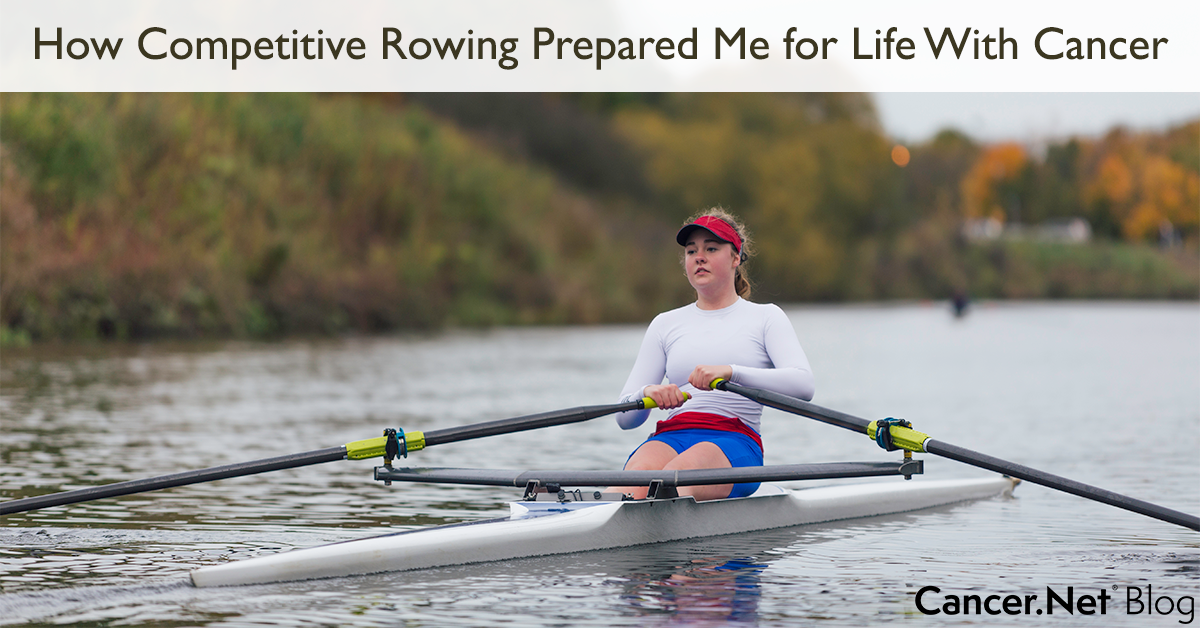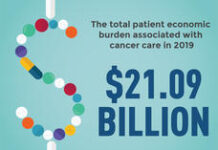
Beth Gardner was born and raised in the suburbs of Pittsburgh, Pennsylvania. In December 1999, Beth retired from the national sport of rowing, and 1 year after her retirement, she was diagnosed with stage 3 breast cancer at age 30. Beth is the author of One Rowing Stroke at a Time – Surviving Stage 3 Breast Cancer for 20-Years.
I spent many years as a competitive rower, and I’ve found that the skillset of creating a race plan in the sport of rowing has been transferable to many other true-life situations, including living with stage 3 breast cancer. The lessons I learned from rowing through training, race planning, and competing, along with God’s guidance, aided in my ability to work through the challenges of cancer’s physical, emotional, and psychological tests.
What I learned during my years as a rower
There are so many reasons I fell in love with rowing. I loved the wholesome and fulfilling experience of racing and having my technical accuracy tested as I worked to move the oars precisely. I loved the level of physical and mental intensity required to propel myself in a boat down a 2,000-meter buoyed course. My burning passion for the sport was fueled by rigorous practice; I averaged 6 hours of practice a day, 6 days a week. The overachieving, stoic, competitive, and witty energy of my fellow rowers kept me motivated during each grueling practice.
The gift of world-class coaching early in my career, as well as 15 years’ worth of dancing experience, taught me how to not let my nerves control my performance. The sole responsibility of a single-boat race outcome, where only I could be at fault for poor performance, taught me about accepting accountability and responsibility for my own actions. But the most important thing that all my rowing coaches taught me throughout the years was the importance of creating a race plan. Race plans helped to not only focus my energy on crossing the finish line, but to also focus on each stroke, one at a time, each 500 meters, while racing to the end. This allowed me to be faster and as efficient as my boat speed allowed.
And, in fact, without consciously realizing it, that was how I handled my journey with breast cancer: one stroke at a time. Each day, each hour, and each minute had its own distinct strokes or steps to take during my cancer experience.
How rowing prepared me for life with cancer
Soon after my diagnosis, after I had received testing to determine how far the cancer had spread, I began planning for the new race of my life: beating cancer. I used a mindset similar to the way I would prepare for a national rowing competition. Who would have known that the race preparation experience I had gained from 5 years of rowing was going to be relevant to my personal health?
The unemotional, logical athlete and survivor within me automatically kicked in; I did not have time to allow my emotions to get in the way. After all, there I was, 30 years old, still very young with supposedly the rest of my life in front of me. Now, I was not sure if I was going to live through the next day, month, or year. It was as though God had pressed my “restart” button, leaving me wishing that I could get a glimpse of the rest of my life’s blueprint.
Up until that point, I had been traveling through life, passionately doing what I believed in, living the “road less traveled.” But now here I was, fighting for my life. Each of the steps I would take going forward was to get out of this alive. Failure, or second place, in this race was not an option.
What helped me cope during cancer
The thing I found most helpful during my cancer experience was developing a daily habit of being spiritually fed. Whatever your own practiced religion or spiritual teachings are, I found it imperative to connect spiritually throughout the day. During cancer, I needed constant direction and positive energy while navigating my unpredictable journey towards full remission. I would ask God to work through my doctors, nurses, and all the medical staff providing me with the necessary medical treatments to heal my body. I was thankful that God had put the right people and support groups into my life.
I would also suggest removing people from your life who will not be helping or supporting you while you are on this journey. Remember, this is your life. Each of the steps taken during your cancer experience is intended to make your life healthier and, hopefully, cancer-free. With that goal in mind, remember to rest when your body asks for it. I found that I was better able to heal and recover when I was getting enough sleep.
Finally, pay attention to your mental health. Search for professional counseling from an individual experienced in working with people with cancer. Situational depression and anxiety can occur while receiving treatments and afterwards. There were not as many professional therapists experienced with the psychological challenges associated with a cancer diagnosis and treatment 20 years ago. Thankfully, today, there are. So, take the opportunity to receive the help you may need.
The author has no relationships relevant to this content to disclose.






